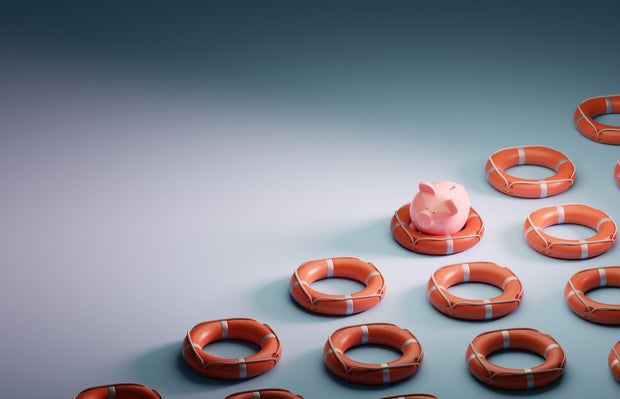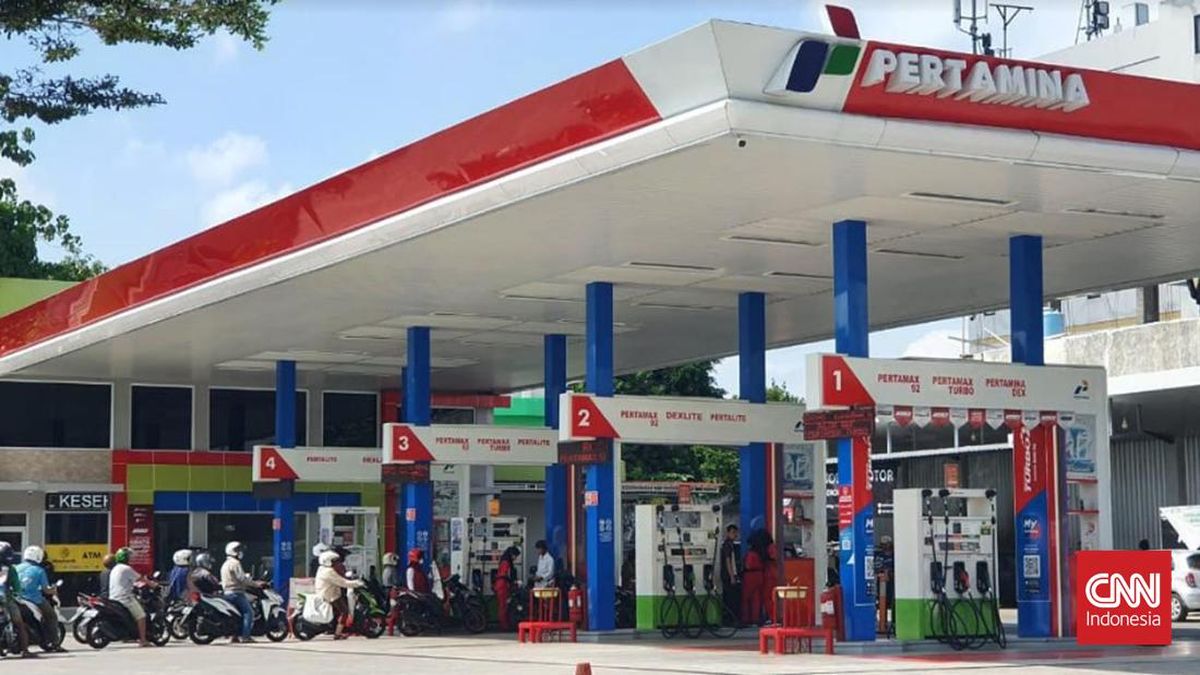 Bankruptcy is just one of many life rafts you can grab onto when you're drowning in debt.
J Studios/Getty Images
Bankruptcy is just one of many life rafts you can grab onto when you're drowning in debt.
J Studios/Getty Images
For many households, the financial stress has been mounting over the last couple of years. Between today's high short-term borrowing costs, record-high credit card balances and the rising cost of living, many borrowers feel like they've hit a wall in terms of the flexibility in their budgets. And, as the debt issues mount, filing for bankruptcy can feel like the only path forward, as it offers a way to wipe the slate clean from unsecured debt. That's partially why so many people are considering it right now.
But filing for Chapter 7 or Chapter 13 bankruptcy is one of the most serious financial decisions you can make, and while it can be a path toward relief, it also comes with serious long-term consequences. A bankruptcy filing can stay on your credit report for up to 10 years, making it harder to borrow, buy a home or even secure certain jobs. That, in turn, can add a new layer of complexity to your finances.
That's why it's typically worth exploring the alternatives before committing to such a drastic step. And, in this economic climate, there are actually several debt relief strategies that could help you regain control without the lasting impact of bankruptcy.
Find out how you can get help with your high-rate debt today.
Bankruptcy alternatives to consider this October
There are a lot of people who are struggling in today's tough economic landscape. That said, bankruptcy is rarely the only option. Here are some of the most practical strategies to consider before taking the bankruptcy route:
Consolidating your debt into one monthly obligation
If you have multiple high-rate debts spread across various credit cards and loans, debt consolidation can simplify your financial life. This strategy involves taking out a single loan, often through a bank, credit union or online lender, that is used to pay off all your existing debts. You're left with just one monthly payment, one that typically has a lower interest rate than what you were paying on credit cards.
The main advantages here are the simplification and potential savings. Instead of juggling multiple due dates and interest rates, you have one predictable payment, making it easier to manage your debt. And because most personal loans come with fixed rates, your monthly payments will stay consistent throughout the life of the loan.
That said, you'll need decent credit to qualify for a favorable interest rate, and you'll need the discipline not to rack up new debt once your credit cards are paid off. If you can secure a rate that's lower than what you're currently paying, though, and can commit to not using your credit cards, consolidation can be a powerful tool.
Learn how the right debt relief strategy could benefit you now.
Working with a credit counselor on debt management
Credit counseling agencies typically offer free consultations that can help you understand your full financial picture and create a realistic budget. If appropriate, they can also enroll you in a debt management plan where the agency negotiates with your creditors to reduce interest rates and waive fees, making your payments more affordable. You'll then make one monthly payment to the counseling agency, which then distributes funds to your creditors.
These plans typically take three to five years to complete, but they can significantly reduce the amount you pay in interest and make it easier to manage your finances. Your credit cards will also be closed during the program, which can temporarily impact your credit utilization, but it's still far less damaging than bankruptcy.
Negotiating lower lump-sum settlements with your creditors
If you're behind on payments and creditors are calling, you may have more leverage than you realize. Creditors often prefer to recover some money rather than risk getting nothing if you file for bankruptcy. That means you may be able to negotiate lower-cost settlements directly with your creditors or work with a debt relief company to reach agreements for less than you owe.
The catch? Settled debts can be reported to credit bureaus and may result in tax liability on the forgiven amount. Your credit score will also typically take a hit as accounts become delinquent during the negotiation process. However, this impact is generally less severe and shorter-lived than bankruptcy. This strategy often works best, though, if you have a lump sum available to offer creditors in return for forgiving a portion of your debt.
Enrolling in creditor hardship programs
What borrowers don't always realize is that most credit card companies (or many other lenders) have hardship programs in place that are designed specifically for customers who are facing temporary financial difficulties. These programs can offer reduced payments, lower interest rates or even temporary payment deferrals.
If you want to try this route, you'll need to contact your creditors directly, explain your situation honestly and ask what options are available. Some may temporarily reduce your minimum payment for a few months, for example. Others might offer a reduced interest rate or waive late fees. The keyword here is "temporary," though. These programs are designed for short-term relief during situations like medical emergencies, job loss or unexpected expenses. Still, they could provide the breathing room you need to get back on track without resorting to bankruptcy.
The bottom line
Bankruptcy should typically be a last resort, not a first response to financial trouble. Before you file, be sure to thoroughly explore these alternatives, as they could help you resolve your debt while protecting your credit and financial future. Take the time to assess your complete financial situation, calculate what you can realistically afford to pay and reach out to creditors or counseling services. The path out of debt isn't always easy, but with the right strategy, it doesn't have to include bankruptcy.
Angelica Leicht is the senior editor for the Managing Your Money section for CBSNews.com, where she writes and edits articles on a range of personal finance topics. Angelica previously held editing roles at The Simple Dollar, Interest, HousingWire and other financial publications.


















































